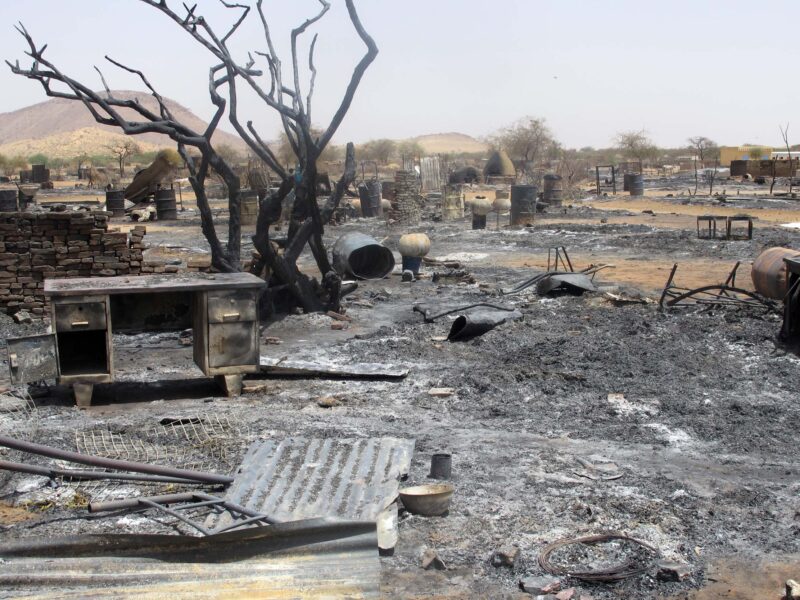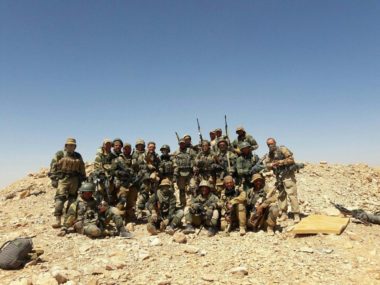Guest post by Austin S. Matthews
Sudan continues to suffer from a crisis created by its own military elite. A failed coup in April has culminated in a war between the Sudanese army and a violent paramilitary force with roots in the Darfur Genocide. How did Sudan’s military dictator, Gen. Abdel Fattah al-Burhan survive the coup by his former deputy? Why did the failed coup transform into a civil war? How does the conflict bode for the survival of al-Burhan? And what should the international community prepare for as the conflict worsens?
On 15 April 2023, the paramilitary Rapid Support Forces (RSF) of Sudan led by General Mohamed Hamdan Dagalo initiated an effort to unseat General Abdel Fattah al-Burhan, head of Sudan’s military junta, who himself had led coups in 2019 and 2021. Dagalo and al-Burhan had been in a power struggle for some time over security sector reform, eventually coming this a violent point. The RSF was not unchallenged, as Sudanese Armed Forces (SAF) troops loyal to al-Burhan held off the RSF advance, denying the paramilitaries a swift victory.
A lot of things went right for General Dagalo on 15 April. The state broadcast center was captured, a key objective for helping coup plotters to coordinate their actions. Bridges were closed, roads blockaded, the airport was shut down, and the presidential palace assaulted. However, RSF forces failed to capture Gen. al-Burhan himself, creating a significant hurdle in forcing the regime’s swift surrender. With al-Burhan able to coordinate army forces, the coup resulted in an unusual stand-still.
General al-Burhan survived the attempt to oust him, but the conflict has since mutated into a violent civil war, leaving thousands dead and over a million civilians displaced. Fearing continuing violence, civilian and diplomatic personnel have been evacuated from the country. All the while, rockets continue to fall on civilians, claiming hundreds of innocent lives as both generals refuse to stand down from their bloody contest for power. However, Gen. Dagalo has not backed down in his effort to seize power, promising to bring al-Burhan to “justice” or make him “die like a dog.”
The junta chief and his former deputy (whose security forces have been declared a “rebel group” by the government) find themselves locked in an escalating civil war. Despite numerous ceasefire talks, it appears that neither man is yet backing down from the power contest. Fighting continues throughout the country as the RSF entrenches itself and counter-offensives are planned. Both sides have also been accused of war crimes, all the while attempting to portray themselves to the world as the legitimate defenders of the Sudanese people. The United States in turn has levied a package of sanctions aimed at restricting the flow of capital to both RSF and SAF-affiliated companies.
Despite the military disadvantages facing Dagalo’s forces, al-Burhan may not necessarily be well-positioned for victory. I argue the international community should prepare for an escalating conflict where both sides desperately fight for survival. The reasons for this stem from the unusual nature of the conflict, which pits an institutionally weak military junta against a paramilitary force that it permitted to grow strong.
First, unlike other militias designed to fight coups, the RSF is a large and dense paramilitary force. Typically, security forces in dictatorships are lightly equipped and trained to push back coup attempts or provide internal security, not to engage in country-wide military campaigns. However, since their origins from the genocidal Janjaweed gangs of the early 2000s, the RSF has transformed into a fighting force of around 100,000 personnel with their own bases throughout Sudan. These size and capacity features make them a dangerous opponent for the military government; one with the built-in capacity for fighting a prolonged conflict.
Second, historical comparison suggests that military regimes like Sudan’s may not be particularly effective at fighting civil wars. In January 2022, the military of Burkina Faso laid blame on the civilian government for losses incurred during a long-standing civil war in the country. After seizing political power, the Burkinabe military junta promised a swift resolution to the insurgency, but since that point the civil war only worsened with the government incurring greater losses. Recent estimates believe that the junta has lost control of sixty percent of the country. Some attribute this decline to wanton military overspending, along with inefficiencies exposed after the coup led to the immediate termination of American foreign military assistance.
Although Sudan’s al-Burhan survived his counter-coup (unlike Burkina Faso’s first junta), his military government suffers from similar problems. Military spending before the coup was already rampant, constituting an estimated third of all public revenue. Also, most foreign assistance to the country was already suspended after al-Burhan re-seized power from a transitional government in 2021. These factors hurt the SAF’s warfighting capacity, which brings them closer to power parity with the RSF.
Civil wars like these are not kind to civilians, producing much death and destruction. As this unusual conflict proceeds, it is important the international community rallies to ensure Sudanese civilians are best guarded from the effects of a protracted intra-elite conflict. They should exhaust diplomatic pressure on both SAF and RSF forces to advocate safer humanitarian corridors. AU and regional diplomatic efforts should also mediate for the secure delivery of food and health assistance to civilians in need.
Austin S. Matthews is an Assistant Professor of Political Science at East Carolina University.






